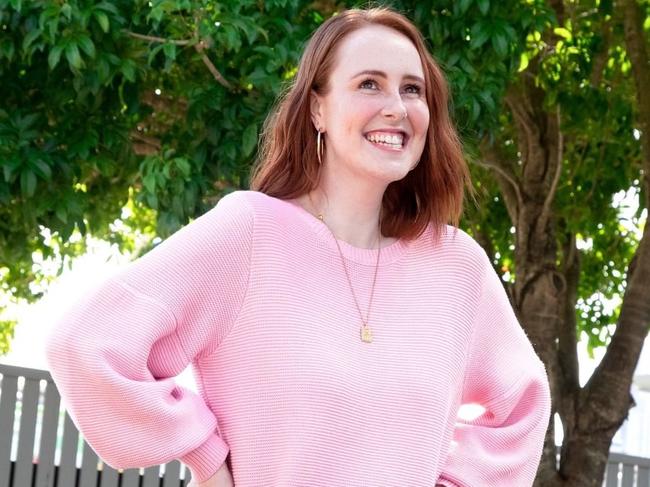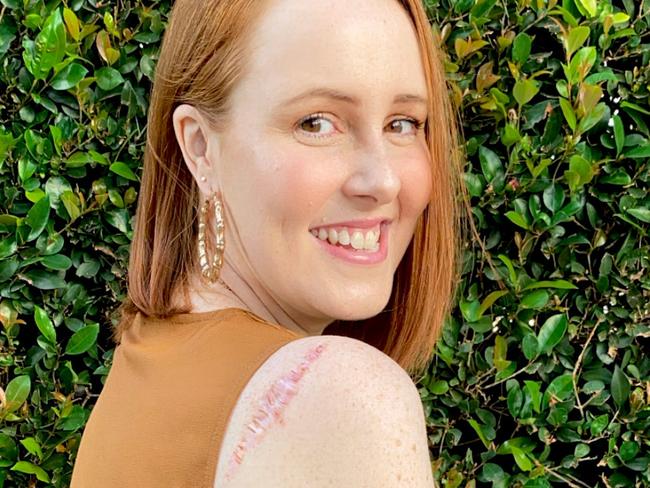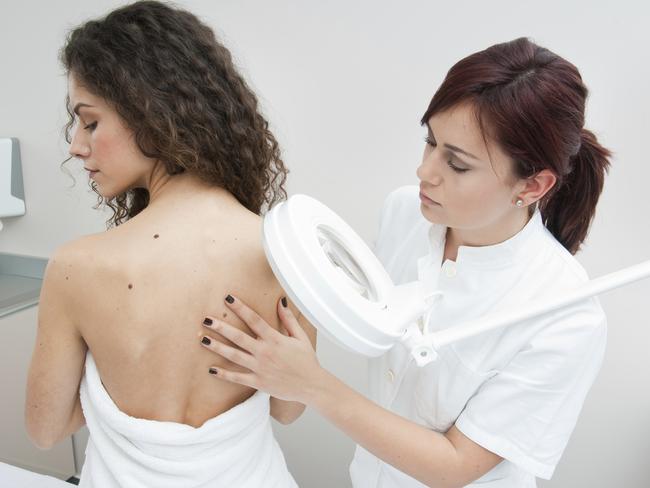Why young women are not getting skin checks and risking their lives
Courtney Mangan was 29 when she found out she had a melanoma, and is not surprised young women avoid making appointments.
SmartDaily
Don't miss out on the headlines from SmartDaily. Followed categories will be added to My News.
Almost half of young women have never had their skin checked by a professional, with many shying away from taking their clothes off in front of a doctor.
But Australians cannot afford to be bashful – a skin check could save your life.
Melanoma of the skin is the third most common cancer in the country, with about 16,800 cases and 1300 deaths in 2021 alone, according to the Australian Institute of Health and Welfare.
And it is only one type of skin cancer that can be picked up during an examination.
Still, new research from Australian life insurance specialist TAL finds 29 per cent of Aussies have never had their skin checked by a professional, and this figure jumps to 46 per cent for women aged 18 to 29.
Two in five people in this demographic say they do not know where to go to get a skin check.

Gold Coast resident Courtney Mangan was 29 when she found out she had a melanoma and is not surprised young women avoid making appointments.
“The main fear is the nudity factor,” she says.
“(I guess the difference with) cervical cancer screenings and Pap smears is they remind you every few years in the mail with those, but there is not as much awareness around getting your skin checked.”
LOOK OUT FOR THE SIGNS
Mangan’s melanoma was diagnosed after she noticed a mole on her shoulder blade had begun to change appearance.
Two GPs had told her it looked fine but then a friend’s father – who is a GP – recommended she see a skin doctor, and he had a sample tested “just to be safe”.
The melanoma was removed with surgery but after 18 months of regular check-ups, two lumps were found near her bicep – it was stage 3b melanoma cancer.
“I had surgery two days later to remove them, then fertility treatment to freeze my eggs because I was going to get cancer treatment,” Mangan says.
“I had a year of immunotherapy, which is basically the melanoma version of chemotherapy.”
But despite a year of fatigue, body aches and feeling “fuzzy”, the treatment did not work.
The cancer spread to Mangan’s liver and bowel, escalating to stage four.

A few months later it was also in her thigh so she began an even more toxic treatment plan.
“I got through all four treatments with minimal side effects, able to work the whole way through,” she says.
“Everyone else seems to end up in hospital with organ failure and colitis, so I was convinced the treatment didn’t work again (but earlier this month) I had a PET scan and the cancer is all gone.
“It was gone to the point where the person who did the report thought I had surgery to remove the cancer because it was so gone.”
PROTECT YOURSELF EVERY DAY
Now 35, Mangan’s message is to stop glamorising tans, and wear SPF every day, not just at the beach.
“Even when driving, sun is hitting your shoulder; when you walk to the coffee shop or through the car park, there is sun exposure,” she says.
“In Australia, we think about the sun when we’re by the pool or beach (but) even sitting at my desk at work, the sun is coming through the window.”

TAL general manager for health services Dr Priya Chagan says one positive takeaway from the TAL SpotChecker Australian Skin Safety Report – which marks the launch of the sixth TAL SpotChecker national skin safety awareness program – is that it shows some Australians are becoming more aware of how location and lifestyle influence their risk of skin cancer.
For example, Queenslanders are 11 per cent more likely than the average Australian to “always” or “frequently” seek shade when spending time outdoors, and only 15 per cent of Queenslanders say they never self-check their skin – below the national average.
“While we have more people nationally that have self-checked their skin, there is still more work to be done to encourage Australians to take control of their skin health and understand that skin cancer can affect anyone, at any time,” Chagan says.
More Coverage
Originally published as Why young women are not getting skin checks and risking their lives




